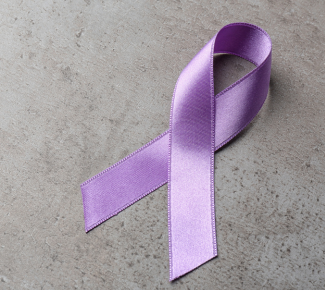TW: Mention of domestic violence, sexual assault, emotional abuse
 Did you know October is Domestic Violence Awareness Month?
Did you know October is Domestic Violence Awareness Month?
Domestic violence, also called intimate partner violence, occurs between people in an intimate relationship. Domestic violence is defined as” a pattern of abusive or coercive behavior used to gain and maintain power and control over another person.” (Office on Violence Against Women). This includes emotional abuse, financial control, sexual assault, intimidation and so much more.
While domestic violence occurs among both heterosexual and same-sex couples, within all socio-demographics, domestic violence is most often performed by men and directed toward women. Using the term ‘gender-based violence’ highlights the fact that violence against women is an expression of power and control inequalities between women and men.
Alarmingly, statistics from the National Network to End Domestic Violence (NNEDV) show that over a quarter of women have experienced rape, physical violence, and/or stalking by an intimate partner during their lifetime.
According to the Office on Women’s Health, violence against women, including sexual or physical violence, is also linked to many health problems. These can include arthritis, asthma, chronic pain, digestive problems, heart problems, nightmares and problems sleeping, migraines, stress, anxiety, PTSD, depression, and much more.
In addition to physical and mental health problems, gender-based violence also affects a women’s ability to work. The NNEDV found a link between personal safety and economic security for victims of domestic violence. For many victims of abuse, their worry about being able to take care of themselves and their children is a big reason they stay in or go back to an abusive relationship. 83% of survivors of intimate partner violence reported that their abusive partners disrupted their ability to work. A women’s performance may suffer due to the physical and emotional impact of domestic violence. If victims take time off work to seek medical attention or attend legal proceedings, their commitment to the job may be questioned. The National Alliance to End Sexual Violence found that half of women who experienced sexual assault had to quit or were fired from their jobs in the first year after the assault. Total lifetime income loss for these women was nearly $250,000 each, ultimately creating a cycle where a woman is unable to leave their abuser due to financial reasons.
At Dress for Success Cincinnati, we strive to empower women to achieve economic independence, not only by providing professional attire and development tools but also by creating a network of support that helps them thrive in work and in life through our 3 main services. Our HigherHER program helps women with resume building, interview techniques, and job search strategies. StyleHER provides women with clothing, so she can go into interviews and her first day of work with confidence. EmpowerHER provides women with a supportive network and offers workshops on a wide range of skills, from financial literacy to healthy cooking.
 However, gender-based violence is an issue that affects countless women around the world, and it can act as a significant barrier to their economic independence and overall well-being.
However, gender-based violence is an issue that affects countless women around the world, and it can act as a significant barrier to their economic independence and overall well-being.
By spreading awareness about gender-based violence, you may help someone break free from a cycle of abuse. When women are subjected to violence, they often live in fear, experience physical and psychological trauma, and may even lose their livelihoods. This directly contradicts Dress for Success Cincinnati's vision of a world where women do not live in poverty, are treated with dignity and respect, and are strengthening their families and shaping their communities.
By shining a light on this issue, we can work towards a world where women can live free from the threat of violence, enabling them to lead happier, healthier, and more prosperous lives.
DFSC has partnered with Women Helping Women (WHW) for our October EmpowerHER. During this meeting, guests will hear from Bri Ledsome, Development Director at WHW and learn about the many ways we can help combat gender-based violence. You can learn more about this event here and learn more about Women Helping Women and their amazing work fighting against gender-based violence and empowering survivors in Cincinnati here.
If you or someone you know is experiencing domestic violence, you can view a list of resources WHW offers here. Help can also be found at the YWCA of Greater Cincinnati. You can call them at 513-872-9259 or text 513-436-3606.
You can also call the National Domestic Violence Hotline, 800-799-SAFE (7233); the National Sexual Assault Hotline, 800-656-HOPE (4673); and the National Teen Dating Abuse Helpline, 866-331-9474. All available 24 hours a day, 7 days a week.